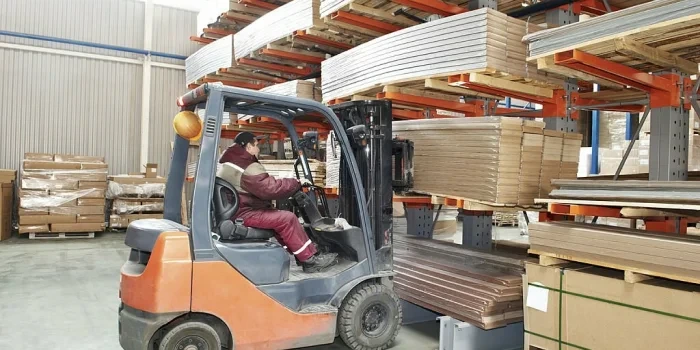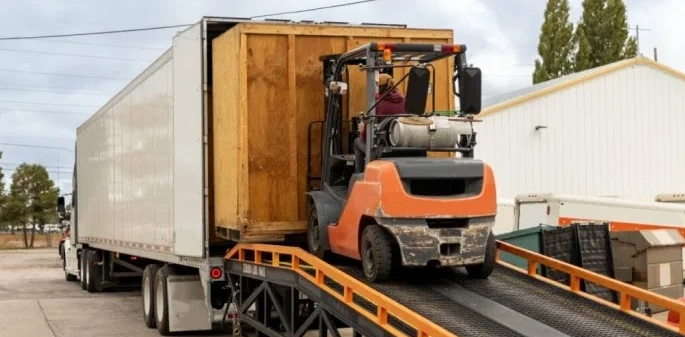Cross-docking is a logistics strategy that has gained significant popularity in the Denver area and beyond. This process involves the efficient transfer of goods from inbound to outbound vehicles with minimal or no storage in between.
While cross-docking offers many benefits, such as reduced warehousing costs and faster delivery, it requires careful planning and execution to be successful. In this blog, we will explore the do’s and don’ts of cross-docking in Denver, helping you make the most of this logistics approach.
The Do’s of Cross-Docking in Denver:
Plan Your Layout Carefully: A well-organized layout is essential for a successful cross-docking operation. Ensure that your facility’s layout is designed to minimize the distance and time required to move products from receiving to outbound docks. Consider factors like the size and weight of the items you handle and the flow of your operations.
Invest in Technology: using an effective warehouse management system (WMS) is a key do for cross-docking in Denver. A WMS can help you manage inventory, track shipments, and optimize your workflow. Make use of real-time data to monitor your operations and make informed decisions.
Prioritize Communication: Effective communication is important when coordinating the movement of products in a cross-docking operation. Establish clear communication channels between your team members and suppliers to ensure everyone is on the same page. This includes using technology to track shipments and send alerts in case of delays or issues.
Streamline Documentation: Minimize paperwork and manual data entry by automating your documentation processes. Use electronic data interchange (EDI) or other digital solutions to improve the accuracy and speed of information sharing between stakeholders.
Optimize Labor and Staff Training: Invest in training for your staff to ensure they understand the cross-docking process thoroughly. Assign roles and responsibilities to each team member to avoid confusion and reduce errors. Consider the use of technology like barcode scanners and forklifts to improve efficiency.
The Don’ts of Cross-Docking in Denver:
Don’t Neglect Inventory Accuracy: Accurate inventory management is key for effective cross-docking. Failing to maintain proper control over your inventory can lead to errors, misshipments, and customer dissatisfaction. Regularly update your inventory records to ensure they show the actual stock levels.
Don’t Overcomplicate Processes: Keep your cross-docking processes as simple as possible. Overcomplicated procedures can lead to confusion, delays, and errors. Aim for efficiency by reducing the number of steps and the handling of products.
Don’t Ignore Quality Control: While speed is essential in cross-docking, it should never come at the cost of quality control. Skipping quality checks can lead to damaged or incorrect products reaching customers, resulting in costly returns and a damaged reputation.
Don’t Neglect Safety: Safety is a top priority in any logistics operation. Make sure your staff is well-trained in safety procedures and operates equipment safely. Regularly inspect your equipment and maintain a clean and organized workspace to reduce the risk of accidents.
Don’t Neglect Compliance: Ensure that you comply with all relevant regulations and standards when using cross-docking in Denver. Non-compliance can lead to fines, delays, and reputational damage. Stay informed about the latest regulations and make sure your team is informed and compliant.

Key Considerations for Cross-Docking in Denver:
Weather and Seasonal Variations: Denver experiences various weather conditions throughout the year, which can affect logistics operations. Be prepared for snow and icy conditions in the winter and plan for potential delays. Consider how seasonal variations may affect your cross-docking schedule.
Local Regulations and Zoning: Denver has specific zoning regulations that may impact your facility’s location and operations. Be aware of these regulations and ensure that your facility complies with local requirements. Check if you need any specific permits to operate a cross-docking facility in the city.
Collaborate with Local Partners: Building strong relationships with local suppliers and carriers is essential for successful cross-docking in Denver. Collaborate with local businesses to ensure a smooth and efficient flow of products through your facility. Consider using local carriers for quicker transportation.
Environmental Considerations: Denver is known for its commitment to sustainability and environmental responsibility. Consider how you can reduce your carbon footprint in your cross-docking operations. This might involve investing in energy-efficient equipment, optimizing routes to minimize emissions, or even exploring renewable energy sources.
Conclusion
Cross-docking is a powerful logistics strategy that can provide significant advantages, particularly in a dynamic and growing city like Denver. By following the do’s and avoiding the don’ts, and taking into account the unique aspects of Denver’s logistics landscape, you can ensure a successful cross-docking operation that delivers efficiency, cost savings, and improved customer satisfaction. Adapt your strategies to the local environment, and you’ll be well on your way to reaping the benefits of cross-docking in the Mile-High City.
Avoid common pitfalls and master cross-docking in Denver with Mile High Delivery & Cold Storage. Connect with us for expert guidance on optimizing your logistics operations with our Cross Docking Service in Denver, CO.

